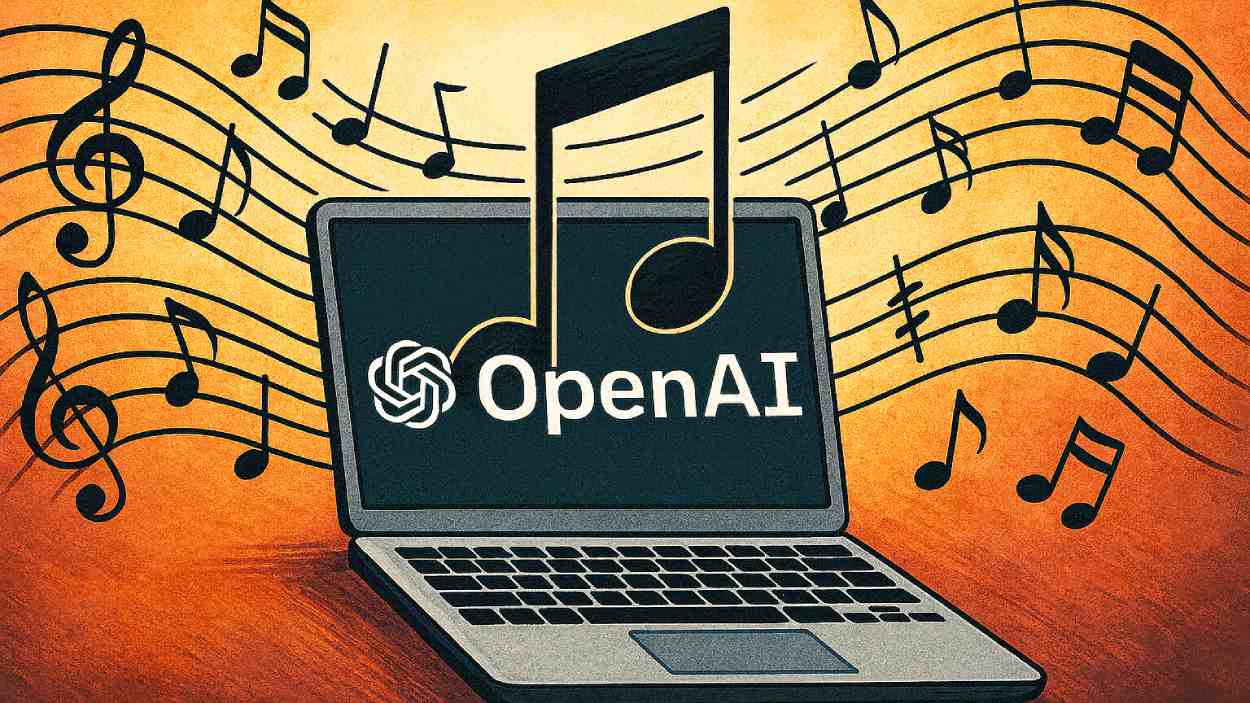OpenAI is building a powerful new generative music tool that will allow users to create music from simple text and audio prompts.
Quick Summary – TLDR:
- OpenAI is developing a new tool to generate music from text and audio.
- The project involves collaboration with Juilliard students for training data.
- It could compete with Google, Suno, and others already in the AI music space.
- Legal and ethical questions loom, especially around copyright and licensing.
What Happened?
OpenAI is quietly working on an ambitious AI-powered music tool, according to reports. The tool will let users generate music using either text descriptions or audio inputs, offering possibilities like layering guitar tracks on vocals or adding background music to video content.
While there’s no official launch date or clarity on whether it will live as a standalone app or as part of ChatGPT or Sora, OpenAI’s recent moves show growing interest in multimedia content generation.
According to The Information, OpenAI is developing AI that generates music and has been working with Juilliard School students to annotate music scores, based on reports from two people familiar with the project
— Tibor Blaho (@btibor91) October 24, 2025
The company has discussed building tools that let users generate… https://t.co/n8erGwGXDf pic.twitter.com/O64tpnpOZe
OpenAI Teams Up with Juilliard for Music Data
To train the model, OpenAI has partnered with students from the prestigious Juilliard School, who are helping annotate music scores. This collaboration is designed to teach the AI how to interpret complex musical patterns, styles, and emotions. The move mirrors OpenAI’s broader strategy of using human expertise to shape its AI capabilities.
This isn’t OpenAI’s first dive into music. The company previously developed tools like MuseNet and Jukebox, which explored generating songs in various styles. However, those projects were shelved. This new effort appears to be a more refined and commercially viable attempt, promising more user control over style, tone, and arrangement.
Features Targeting Creators and Musicians
According to reports, the tool may include:
- Multi-vocal track generation
- AI-assisted mixing
- Flexible music creation using text or sample audio
These features could make it especially appealing to independent artists, content creators, and video editors looking for quick and affordable music options.
Legal Uncertainty and Industry Pushback
Despite its innovation, OpenAI’s music tool is walking into a legal and ethical minefield.
The company has not confirmed any licensing deals with major music labels like Sony Music, Universal Music Group, or Warner Music Group. This raises concerns for enterprise users who could face legal issues if AI-generated music includes copyrighted material.
In Germany, rights group GEMA is already suing OpenAI for allegedly using copyrighted song lyrics in ChatGPT training. And in the U.S., the Recording Industry Association of America (RIAA) recently sued AI music startups Suno and Udio for similar copyright issues.
If OpenAI follows its past “opt-out” data policy as it did with its Sora video model, it might face significant industry backlash unless it makes licensing and usage transparent from the start.
The AI Music Landscape is Heating Up
OpenAI’s project enters a space that’s already buzzing. Companies like Google, Suno, and ElevenLabs have launched or are developing generative music tools. Some AI-generated bands, like The Velvet Sundown, have even fooled listeners into thinking they were real, racking up millions of views.
There have also been incidents of AI-created parody songs with controversial content charting on Spotify, further blurring lines between genuine and synthetic art.
SQ Magazine Takeaway
I think OpenAI’s new tool is a big step toward making music creation more accessible, but it also brings up a lot of red flags. Artists deserve to be protected, and the industry can’t afford another wave of copyright chaos like we’ve seen with video and image generation. This tech could empower a lot of small creators if done right, but only if OpenAI gets ahead of the legal and ethical issues from day one.


































































